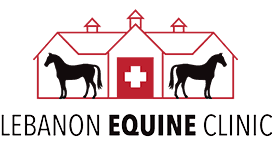
Lebanon Equine Internal Medicine
Internal injuries horses suffer can have serious consequences and often call for immediate attention. Our Lebanon equine internal medicine professionals have extensive experience diagnosing these issues and implementing a proper treatment protocol. Horse owners throughout Warren County and the entire regional area have come to count on us for the reliability of our work.
The phone lines at the Lebanon Equine Clinic are open 24/7. Call (513) 540-3113 to get the help you need with your horse’s injuries.
Types of Internal Equine Injuries We Treat
These injuries can affect various organs and systems within the horse's body.
Some of the common areas that internal equine medicine focuses on are these:
- Respiratory System: Internal injuries to the respiratory system in horses can result from trauma, such as forceful impacts or kicks. These injuries may cause lung contusions, collapsed lungs, or dangerous blood accumulation in the chest. Common respiratory conditions include the flu and other viruses.
- Gastrointestinal Tract: The gastrointestinal tract is prone to injury in horses due to its complex structure and delicate nature. Trauma can cause internal bleeding, bowel perforation, or damage to organs, including the stomach or intestines. Ulcers, colic, and inflammatory bowel disease are common medical issues in horses.
- Nervous System: Injuries to the nervous system can occur in horses due to accidents, falls, or head trauma. Such injuries can range from concussions to spinal cord damage. Internal bleeding or swelling within the brain can further complicate these injuries.
- Kidneys: The kidneys play a vital role in excreting waste products and maintaining fluid balance in horses. Traumatic injuries to the kidneys can cause internal bleeding, renal contusions, or lacerations.
- Liver: Damage to the liver often occurs as a result of external trauma, such as kicks or high-speed impacts. These injuries can lead to internal bleeding, liver contusions, or rupture.
It's important to note that internal injuries in horses can vary in severity, and immediate veterinary attention may be crucial for proper diagnosis and treatment. A range of digital imaging tools are at our disposal to evaluate the extent of the injuries and determine a proper course of treatment.
Treatment options for internal injuries in horses typically involve medical management, fluid therapy, and pain control. The specific treatment approach will depend on the nature and severity of the injury, as well as the overall condition of the horse.
Internal in horses can have significant consequences on their overall health and well-being. Prompt recognition of the signs and appropriate veterinary intervention are essential in striving for the best possible outcome.
Our Lebanon equine internal medicine technicians can be reached by either calling (513) 540-3113 or through the use of our online contact form. Reach out today.
What sets us apart from the rest
-
24/7 Veterinary CareWith our multi-doctor practice, a veterinarian is available 24/7 to provide care for your equine companions, even in case of emergency.
-
Diverse Practice
With our multi-doctor practice, a veterinarian is available 24/7 to provide care for your equine companions, even in case of emergency.
-
More Than Just Veterinary Professionals
We are more than just veterinary professionals, we ourselves are pet owners. We strive to provide veterinary care with compassion, understanding and respect.
-
Experienced Doctors and Trained StaffOur doctors are Fear-Free Certified and highly established as well as experienced. Our entire staff is certified in Safe Handling.

Hear From Our Clients
-
“Honest, straightforward, and actually care about both you and your horse.”
Laura F. -
“I wouldn’t go to any other place! This group is the best! They are always so friendly and caring and they know what they are doing!”
Francie S.


